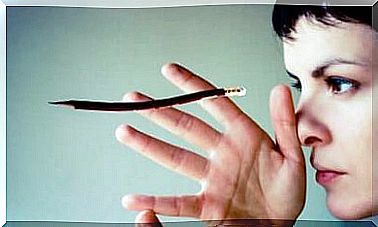The Smell Of Coffee Stimulates The Brain And Improves Cognitive Processes

The smell of coffee delights us and stimulates us. What’s more, nothing can be as comforting as being enveloped in its aroma when we wake up in the morning. It is a pleasure for the senses, the palate and the brain. In fact, a recent study tells us that its scent is able to motivate us, strengthen our cognitive processes and also improve our mood.
We have all experienced this before, and more than once. You just have to open the coffee packaging, whether it is the box where the classic capsules are stacked or these packages of ground coffee to feel an indefinable pleasure at the olfactory level. We love its smell, its nuances and this velvety depth that transports us to warmer and more pleasant places.
These promising experiences are fostered by our wise and skilful brain, which in turn is guided by one of the most powerful senses in most humans: smell. The smell of coffee travels from the cerebral cortex to the limbic system, to these fabulous regions where emotions and memory share the same circuits, the same routes.
If this coffee scent improves our performance, it’s not because it gives us sudden power or ability. We are only talking about emotions and well-being, a simple placebo effect. This is undoubtedly a very interesting fact that is worth exploring …

Our brains love coffee
We often hear it said that there is no place as rich in ideas as the inside of a coffee cup. Writers know this, as do students, philosophers and anyone who drinks it in the morning to wake up or in the evening to better face long hours of study or work. It is no coincidence that this drink was Napoleon’s favorite before entering each battle (even if his stomach did not think the same).
Caffeine is one of the most popular alkaloids in our brain. It is a natural stimulant of the nervous system. Its effects are felt 15 minutes after ingesting it and can last up to 6 hours. It’s a sensational thing, there’s no doubt about it, and it’s all down to its molecular structure. Caffeine is able to block adenosine receptors, molecules that make us feel tired.
But that’s not all. Coffee doesn’t just help us wake up in the morning or be more efficient at our work. It also produces a great feeling of pleasure and the responsible for this fact is none other than dopamine. This neurotransmitter plunges us into a very characteristic state of activation, well-being and motivation; and it is also sometimes responsible for our real addiction to coffee …

The smell of coffee, a very powerful but little-known resource
A study published in June in the Journal of Environmental Psychology tells us something very interesting. The smell of coffee improves our cognitive abilities, that is to say, it optimizes our attention, our capacity for analysis, problem-solving as well as our professional and academic performance in general. It sounds like magic, but the author of the work, Adriana Madzharov, explains something as fascinating as it is curious: it is a simple placebo effect.
Those responsible for this research were able to demonstrate that it only takes one room or a room that smells of coffee for 90% of people to feel well-being. In addition, we already know that the brain loves coffee. Caffeine stimulates it, activates it and gives it a feeling of pleasure. Therefore, this simple aroma can also activate all these processes thanks to the neural path that takes place between the cerebral cortex and the limbic system: we feel motivated by thinking of its benefits.
The placebo effect undoubtedly has great power in humans. What’s more, neuromarketing experts suggest that we often overlook the great effect of our sense of smell. This cerebral resource is practically underutilized when in reality it is a direct link to our emotions and our memory, an exceptional channel that is able to offer us inspiration, calm, activation, to improve our attention and introspection, to make us more creative and receptive to our environment …
The power of smell
Helen Keller, the famous writer and political activist, lost her senses of sight and hearing at just 19 months old. From this episode, Helen learned to be in tune with scents at a very early age. Her world acquired shapes and nuances by fixing her attention on each perfume, each change, each nuance of the wind, of the earth, of the people around her …
The smell of coffee was also one of his favorites. Thus, in a world of darkness and without the slightest sound, his universe has become infinitely and immensely rich thanks to the power of smell. This is something the marketing industry is well aware of, and the world of work, as well as organizations, are likely to start to take into account. A scent of vanilla, cinnamon, coffee or chocolate is often enough to improve the well-being and productivity of workers… This subject is full of possibilities.










